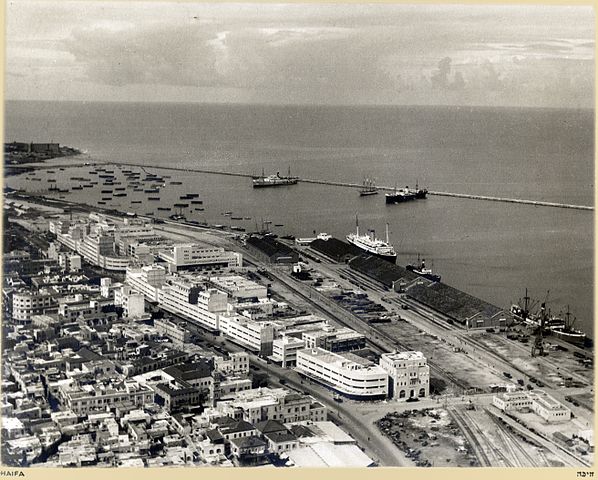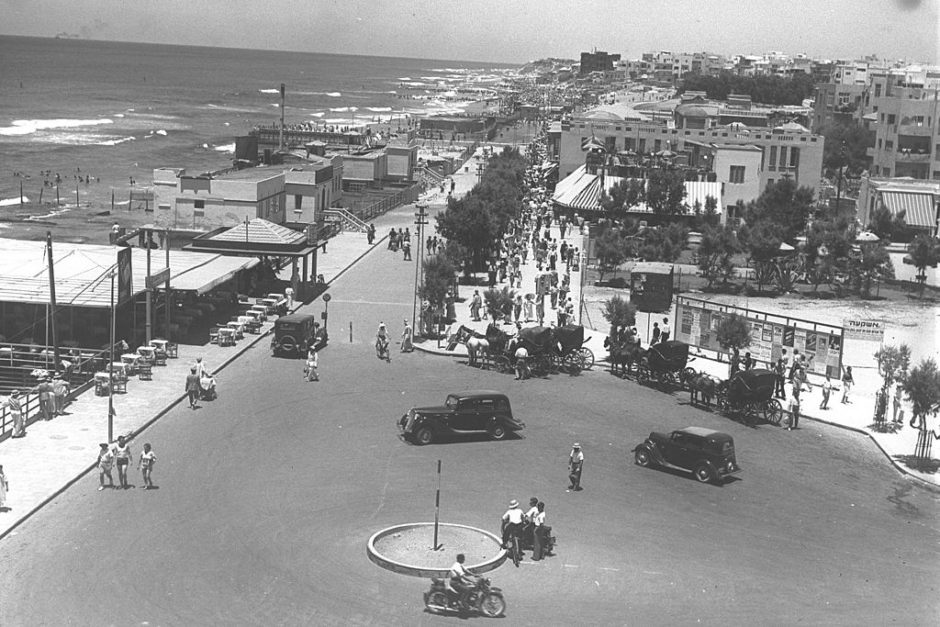On the eve of World War II, British journalist J.M.N. Jeffries wrote Palestine — the Reality: The Inside Story of the Balfour Declaration, 1917-1938, a book that reflected his views of the endemic turmoil in Palestine. A foreign correspondent of The Daily Mail in London, he had covered World War I and the tensions between Jews and Arabs in Palestine, a British Mandate since the early 1920s.

Jeffries’ book, comprehensive in scope but slanted heavily in favor of the Palestinian cause, was not widely distributed, and the original print run was destroyed by a German bombing raid during the blitz. As a result, only three known copies of Palestine: The Reality could be found in British libraries in the 1940s. In 1969, the Institute for Palestine Studies in Beirut published one of its chapters, and seven years later, a U.S. publisher republished the book in its entirety.
The latest edition, published by Olive Branch Press to coincide with the 100th anniversary of the Balfour Declaration on November 2, comes with a new introduction by Ghada Karmi, a Palestinian physician and author. Karmi, who describes herself as one of “the direct victims of the Balfour Declaration,” claims that Jeffries is a “neutral” observer, but this is very far from the truth, as he himself acknowledges in the original introduction.
His purpose, he writes, is to present the Palestinian case to the British public. Lest he be accused of being an antisemite, Jeffries says, “I have never had any truck with antisemitism.” And in a reference to Nazi Germany, he comments, “I find the persecution of the Jews in Central Europe as a disgrace to humanity …”
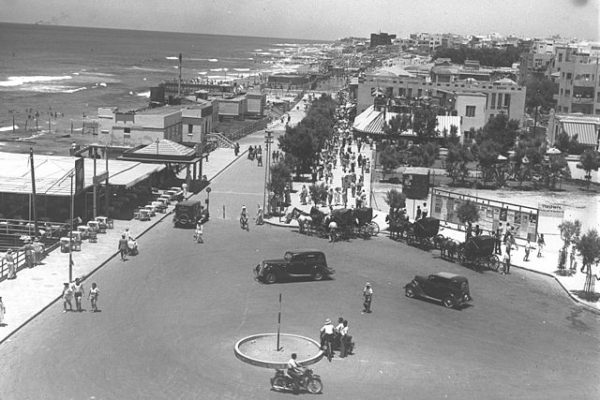
Having established his credentials as an anti-racist, he goes on the offensive, relentlessly attacking Zionism and the Zionist project in Palestine, which was concentrated along the coastal plain facing the Mediterranean Sea. Jeffries is clearly someone who believes that Zionism is an unjust colonial movement intent on usurping Palestinian lands.
Claiming that the Palestinian historic link to Palestine is infinitely stronger than the Jewish connection, Jeffries belittles Zionist leaders obsessed with “the absurd notion that Palestine has always been the patrimony of the Jews.” While he is hostile to Zionism, he respects the religious Jews who arrived in Palestine before the advent of the modern Zionist movement. “They practiced a Zionism which did not seek to oust the Arabs,” he writes, erroneously suggesting that Zionism opposed Jewish-Arab coexistence.

Like Karmi, Jeffries has nothing good to say about the 67-word Balfour Declaration, which is named after the British foreign minister, Arthur Balfour, and which endorsed the notion of a “national home for the Jewish people” in Palestine.
The British government, having promised Arabs territorial independence and having failed to consult the Palestinians about its intentions, had no right to issue the declaration, which he dismisses as “illicit.”
In line with theories presented by other writers, he speculates that the British prime minister, Lloyd George, backed the declaration to win over Jews to the Allied cause and to repay Chaim Weizmann — a scientist and a Zionist luminary — for his discovery of acetone, a chemical compound which proved useful in the manufacture of munitions during World War I.
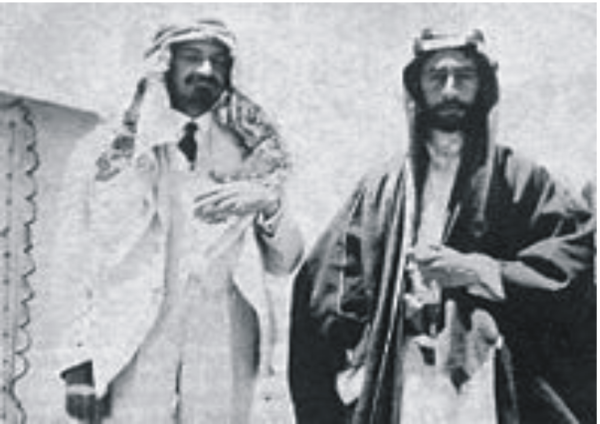
Jeffries claims that Weizmann’s meeting with Emir Feisal in 1919 should be viewed in the correct context. Feisal expressed fraternity with Jews seeking to rebuild their ancient homeland, but he also told Weizmann that Jewish settlement in Palestine should be carried out within the parameters of Arab sovereignty.
He has praise for Sir Herbert Samuel, the first British High Commissioner in Palestine. “He brought to his duties a conscientiousness which impressed all those who came into contact with him,” he observes. What does Jeffries mean? Samuel “threw his influence against dumping of great numbers of (Jewish) immigrants at once, and did what he could to make the Arabs regard him as a close friend.” In short, Samuel was a rarity — “a Zionist with scruples.”
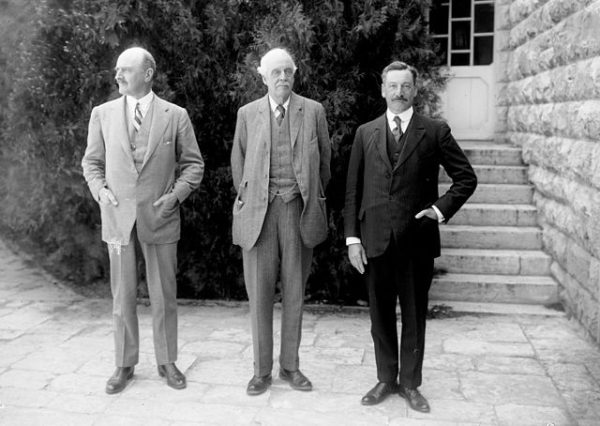
This brand of condescension does not elevate Jeffries’ narrative.
Jeffries is right to criticize countries, like Poland, that supported Zionism for purely ulterior motives. Poland was eager to whittle down the size of its immense Jewish population. “Other Central European states share the Polish attitude,” he says. “They have every interest in the triumph of the Zionists in Palestine, since that means relieving themselves of those unhappy Jewish subjects whom they find an incubus. They may make profession of being swayed by the arguments of Zionism, but they do not in their hearts give two farthings about Zionism and its arguments. They act entirely according to what they deem their own interests, and it is not Arab protests which are going to move them.”
In closing, Jeffries reiterates his case for the Palestinians.

“In equity and in law, Palestine belongs to its native people and to no one else … The implacable fact is that the Arabs own Palestine by natural right, and also by law.”
He adds, “The Zionist idea of a return to the land and of establishing a polity wherein they will carry out all national work, from railway building to road sweeping, and so to remove the reproach of parasitism which dogs them — that in itself is an idea which must rouse sympathy.
“But all that was good in it was lost when it was put into execution by the political Zionists. Like everyone else returning to the land, they should have chosen a vacant plot, or chosen one which its sparse inhabitants were willing that they should occupy. Instead of this, they insisted on returning as owners to the Arabs’ territory, upon the falsified plea which we know.”
Jeffries, who died in 1960, lived long enough to witness the end of British rule in Palestine, the outbreak of the first Arab-Israeli war, the dispossession of hundreds of thousands of Palestinians from their homes and the creation of the state of Israel. It’s safe to say that these momentous events would have solidified his pro-Arab views.
